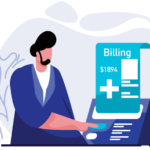Voice over Internet Protocol (VOIP) services have revolutionized the way we communicate. While many people have adopted VOIP, several misconceptions still linger. Understanding the truth behind these misconceptions can help individuals and businesses make informed decisions about their communication needs.
What is VOIP?
Before diving into the misconceptions, it’s essential to understand what VOIP is. VOIP is a technology that allows users to make voice calls using the internet instead of traditional telephone lines. This technology converts voice signals into digital data packets, which are transmitted over the internet. VOIP services offer various features, including call forwarding, voicemail, and video conferencing, often at a lower cost than traditional phone services.
Common Misconceptions About VOIP Services
1. VOIP is Only for Large Businesses
One of the most widespread misconceptions is that VOIP services are only suitable for large enterprises. While it’s true that many big companies leverage VOIP for its scalability, small and medium-sized businesses (SMBs) can benefit just as much. VOIP services are designed to accommodate various business sizes, providing flexible plans that can scale as needed. SMBs can enjoy advanced features without the high costs associated with traditional phone systems.
2. VOIP Requires High-Speed Internet
While a stable internet connection is crucial for VOIP, the notion that you need a very high-speed connection is misleading. Most modern broadband connections can support VOIP calls effectively. Even with moderate speeds, VOIP can function well. However, if multiple devices are streaming video or using heavy bandwidth simultaneously, call quality may suffer. In such cases, prioritizing bandwidth for VOIP can help maintain call quality.
3. VOIP Call Quality is Always Poor
Another common belief is that VOIP calls suffer from poor quality. This misconception often stems from early VOIP technology, which sometimes produced choppy audio or dropped calls. However, advancements in technology have significantly improved VOIP call quality. Today, with proper equipment and a reliable internet connection, users can experience crystal-clear audio. Factors such as network congestion and equipment quality can affect call quality, but these issues can be managed with proper setup.
4. VOIP is Not Secure
Security concerns surrounding VOIP are prevalent, with many believing that internet-based calls are less secure than traditional ones. While it’s true that VOIP systems can be vulnerable to hacking and eavesdropping, this is largely dependent on the measures taken to secure the network. By using encryption, strong passwords, and secure firewalls, businesses can protect their VOIP systems effectively. In fact, when properly secured, VOIP can offer a level of security comparable to traditional phone lines.
5. VOIP Services are Expensive
Many people assume that VOIP services are costly and only accessible to those with larger budgets. In reality, VOIP can be a cost-effective solution for both individuals and businesses. Many providers offer competitive pricing and various plans that cater to different needs. Additionally, because VOIP uses the internet for calls, long-distance and international calls are often much cheaper compared to traditional phone services.
6. You Can’t Use VOIP Without a Smartphone or Computer
Some believe that VOIP services can only be used on smartphones or computers. While many popular VOIP applications, like Skype or Zoom, do require these devices, dedicated VOIP phones are available. These phones are designed specifically for VOIP and can be used just like traditional phones, allowing users to make and receive calls without needing a computer or smartphone.
7. VOIP Services Do Not Offer Emergency Calling
Another misconception is that VOIP services do not support emergency calling. While it is true that traditional phone services automatically provide location information to emergency services, many VOIP providers now offer Enhanced 911 (E911) services. This feature allows users to register their address, ensuring that emergency responders can locate them during a call. However, it’s essential to verify that your VOIP provider offers this service and that your address is correctly registered.
8. All VOIP Providers Offer the Same Features
Some users believe that all VOIP services are the same and offer identical features. In reality, VOIP providers vary widely in terms of features, quality, and pricing. When choosing a VOIP provider, it’s crucial to research and compare offerings. Look for providers that offer features tailored to your specific needs, such as call forwarding, voicemail-to-email, and video conferencing.
9. VOIP Services are Difficult to Set Up
The belief that VOIP services are complicated to set up is another misconception. While the initial configuration may seem daunting, many VOIP providers offer user-friendly interfaces and customer support to assist with the setup process. For businesses, many providers can handle installation and training, making the transition to VOIP smoother and more manageable.
10. VOIP is Only for Voice Calls
Many people think of VOIP services solely as a means for voice communication. However, VOIP technology supports various forms of communication, including video calls, text messaging, and conference calls. This versatility makes VOIP a powerful tool for businesses and individuals looking to enhance their communication methods.
FAQs
1. What is VOIP and how does it work?
VOIP, or Voice over Internet Protocol, is a technology that allows users to make voice calls using the internet instead of traditional telephone lines. It converts voice signals into digital data packets, which are then transmitted over the internet. This enables not only voice calls but also video conferencing and messaging.
2. Is VOIP reliable for business communications?
Yes, VOIP can be very reliable for business communications, especially when using a stable internet connection. Many businesses use VOIP services successfully. To enhance reliability, it’s advisable to have a dedicated internet connection for VOIP and to choose a reputable provider with good service level agreements.
3. Can I use VOIP on my existing phone?
Yes, you can use VOIP on your existing phone with the right equipment. Many VOIP providers offer adapters that allow traditional phones to connect to VOIP services. Additionally, dedicated VOIP phones are available, designed specifically for this purpose.
4. Are VOIP calls secure?
VOIP calls can be secure, but their security depends on the measures taken to protect them. Using encryption, strong passwords, and secure networks can help safeguard VOIP communications. It’s essential to choose a provider that prioritizes security features.
5. What do I need to get started with VOIP?
To get started with VOIP, you typically need a reliable internet connection, a device for making calls (like a phone, computer, or dedicated VOIP phone), and a subscription to a VOIP service provider. Some providers may also require specific equipment or software to enhance functionality.
Conclusion
As VOIP technology continues to evolve, it’s essential to dispel the misconceptions that surround it. By understanding the truth about VOIP services, individuals and businesses can make informed decisions about their communication needs. VOIP offers flexibility, cost savings, and a range of features suitable for various applications, making it an increasingly popular choice for modern communication. If you’re considering switching to VOIP, take the time to research and choose a provider that fits your needs.

















